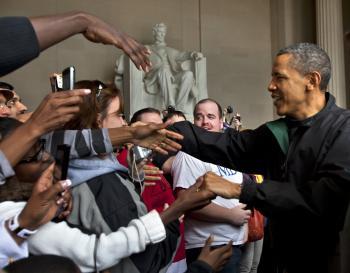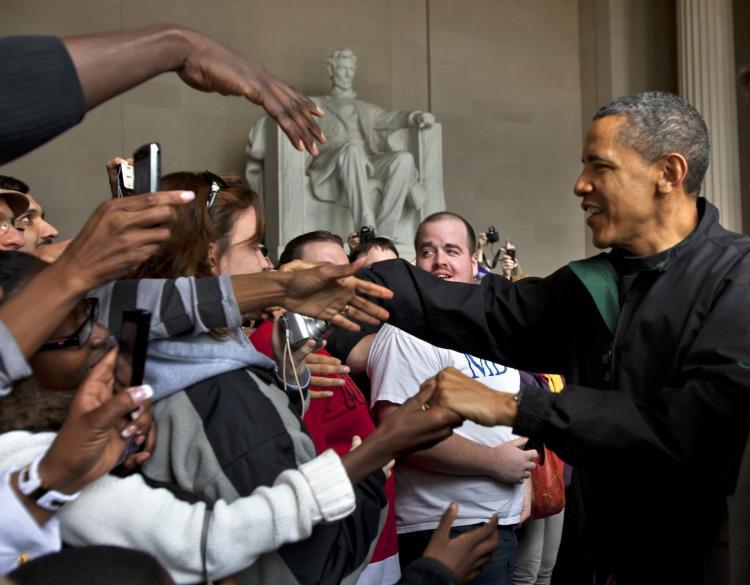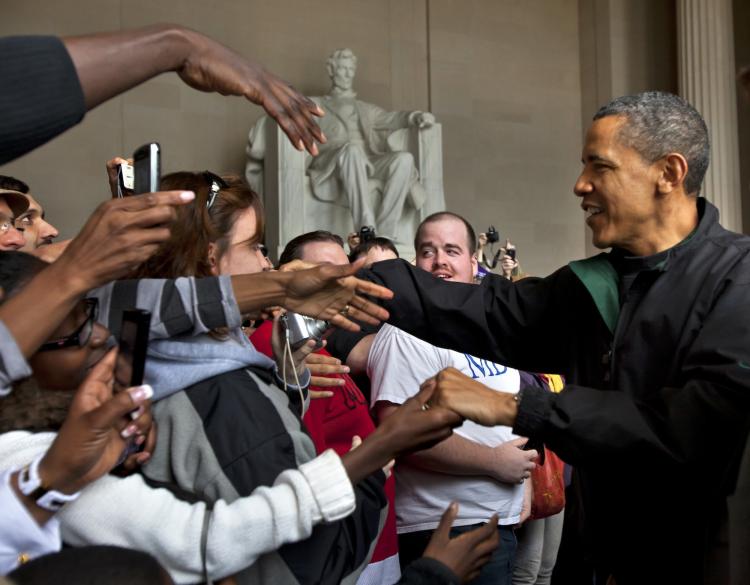Brinkmanship ended in bipartisan compromise in Washington late Friday, and Democrats and Republicans avoided a government shutdown. Had they not made the midnight April 8 deadline, federal parks and libraries would have closed, Small Business Association loans would have been halted, military pay would have been delayed, and nonessential federal workers would have gone home.
According to the White House, the compromise 2011 Budget holds the largest spending cut in America’s history, $78.5 billion.
Their agreement cut “$13 billion from funding for programs at the Departments of Labor, Education, and Health and Human Services as well as over $1 billion in a cut across nondefense agencies, forcing everyone to tighten their belts. There will be reductions to housing assistance programs and some health care programs, along with $8 billion in cuts to our budget for state and foreign operations,” according to Dan Pfeiffer, White House communications director, on the White House blog.
Republicans had announced a wish to defund and repeal federal health care reform, or the Affordable Care Act of 2010. That was not successful.
According to House Majority Leader Eric Cantor, his party proposes to drop spending to 2008 levels and freeze it there for five years, reduce the federal workforce by 10 percent, as well as defund health care reform, and eliminate “$800 billion in tax increases” caused by the health care bill.
The purpose is to reduce the deficit and create jobs, according to Sen. Paul Ryan.
Speaking of health care, Cantor stated his party proposes to save “Medicare by protecting those currently in the program or soon to join it from experiencing any changes and offers future beneficiaries the same health care options enjoyed by members of Congress.”
President Obama said in his weekly address, “Some of the cuts we agreed to will be painful—programs people rely on will be cut back; needed infrastructure projects will be delayed. And I would not have made these cuts in better circumstances. But we also prevented this important debate from being overtaken by politics and unrelated disagreements on social issues. And beginning to live within our means is the only way to protect the investments that will help America compete for new jobs—investments in our kids’ education and student loans; in clean energy and lifesaving medical research.”
According to the White House, the compromise 2011 Budget holds the largest spending cut in America’s history, $78.5 billion.
Their agreement cut “$13 billion from funding for programs at the Departments of Labor, Education, and Health and Human Services as well as over $1 billion in a cut across nondefense agencies, forcing everyone to tighten their belts. There will be reductions to housing assistance programs and some health care programs, along with $8 billion in cuts to our budget for state and foreign operations,” according to Dan Pfeiffer, White House communications director, on the White House blog.
Republicans had announced a wish to defund and repeal federal health care reform, or the Affordable Care Act of 2010. That was not successful.
According to House Majority Leader Eric Cantor, his party proposes to drop spending to 2008 levels and freeze it there for five years, reduce the federal workforce by 10 percent, as well as defund health care reform, and eliminate “$800 billion in tax increases” caused by the health care bill.
The purpose is to reduce the deficit and create jobs, according to Sen. Paul Ryan.
Speaking of health care, Cantor stated his party proposes to save “Medicare by protecting those currently in the program or soon to join it from experiencing any changes and offers future beneficiaries the same health care options enjoyed by members of Congress.”
President Obama said in his weekly address, “Some of the cuts we agreed to will be painful—programs people rely on will be cut back; needed infrastructure projects will be delayed. And I would not have made these cuts in better circumstances. But we also prevented this important debate from being overtaken by politics and unrelated disagreements on social issues. And beginning to live within our means is the only way to protect the investments that will help America compete for new jobs—investments in our kids’ education and student loans; in clean energy and lifesaving medical research.”







